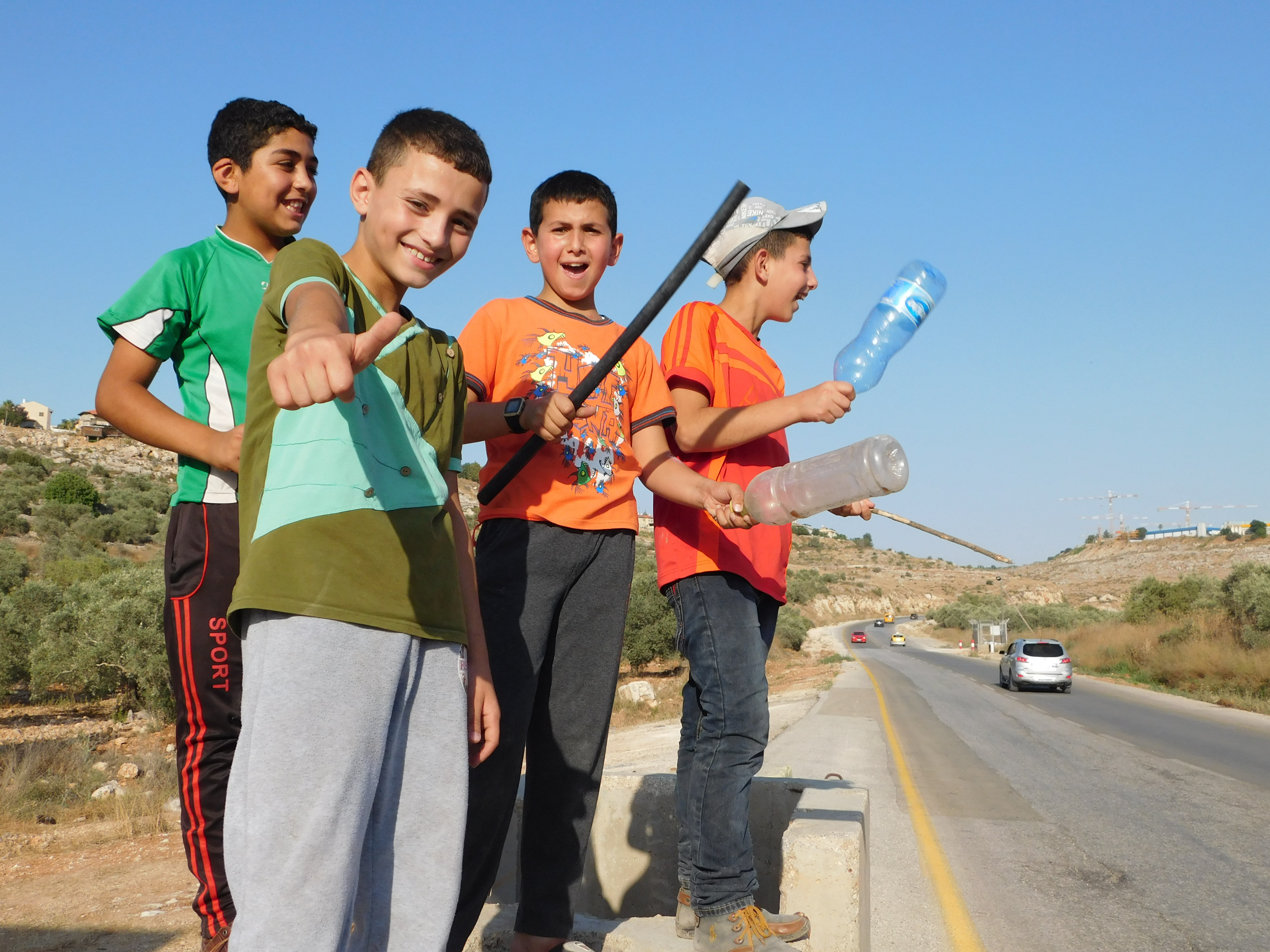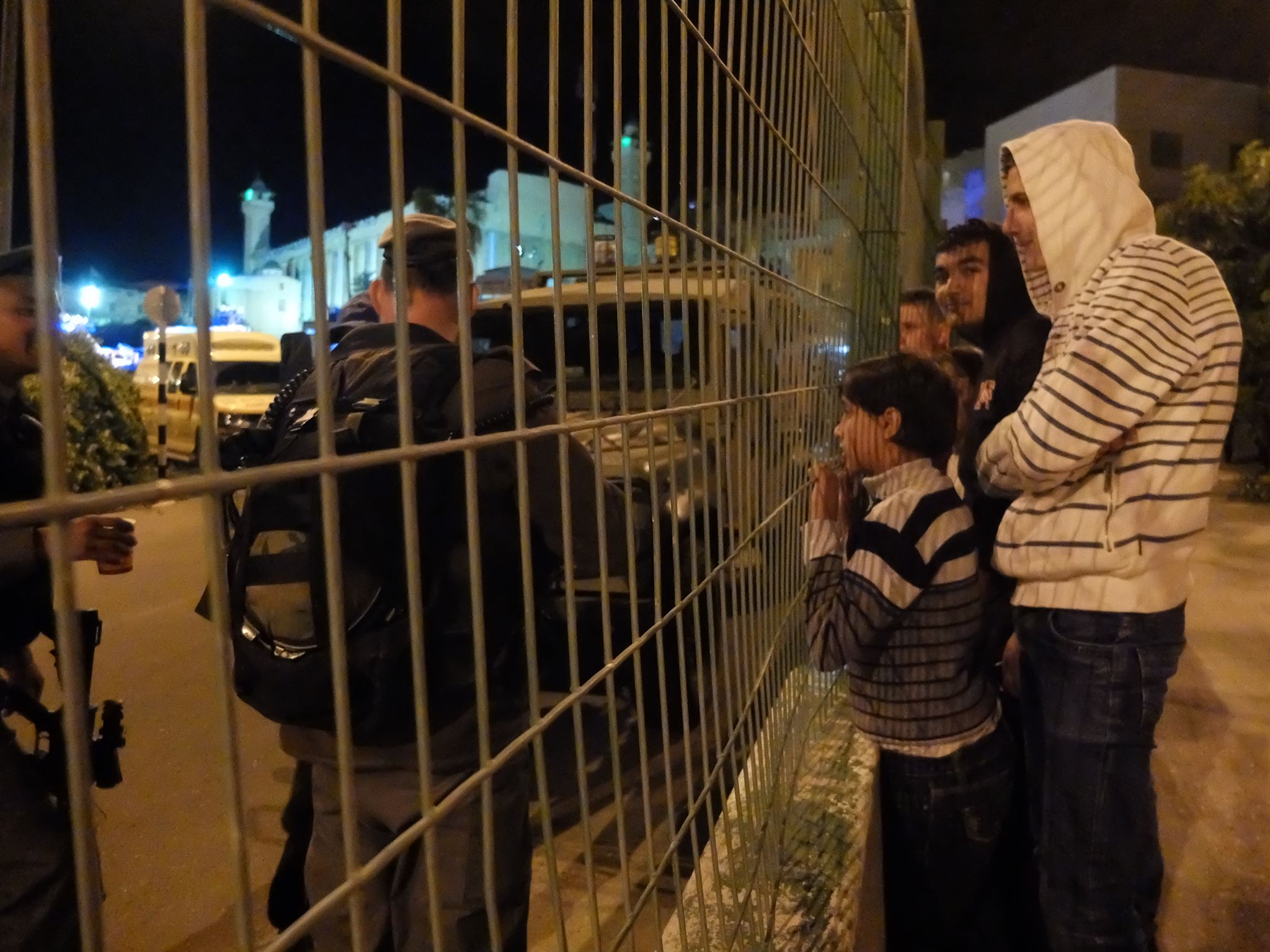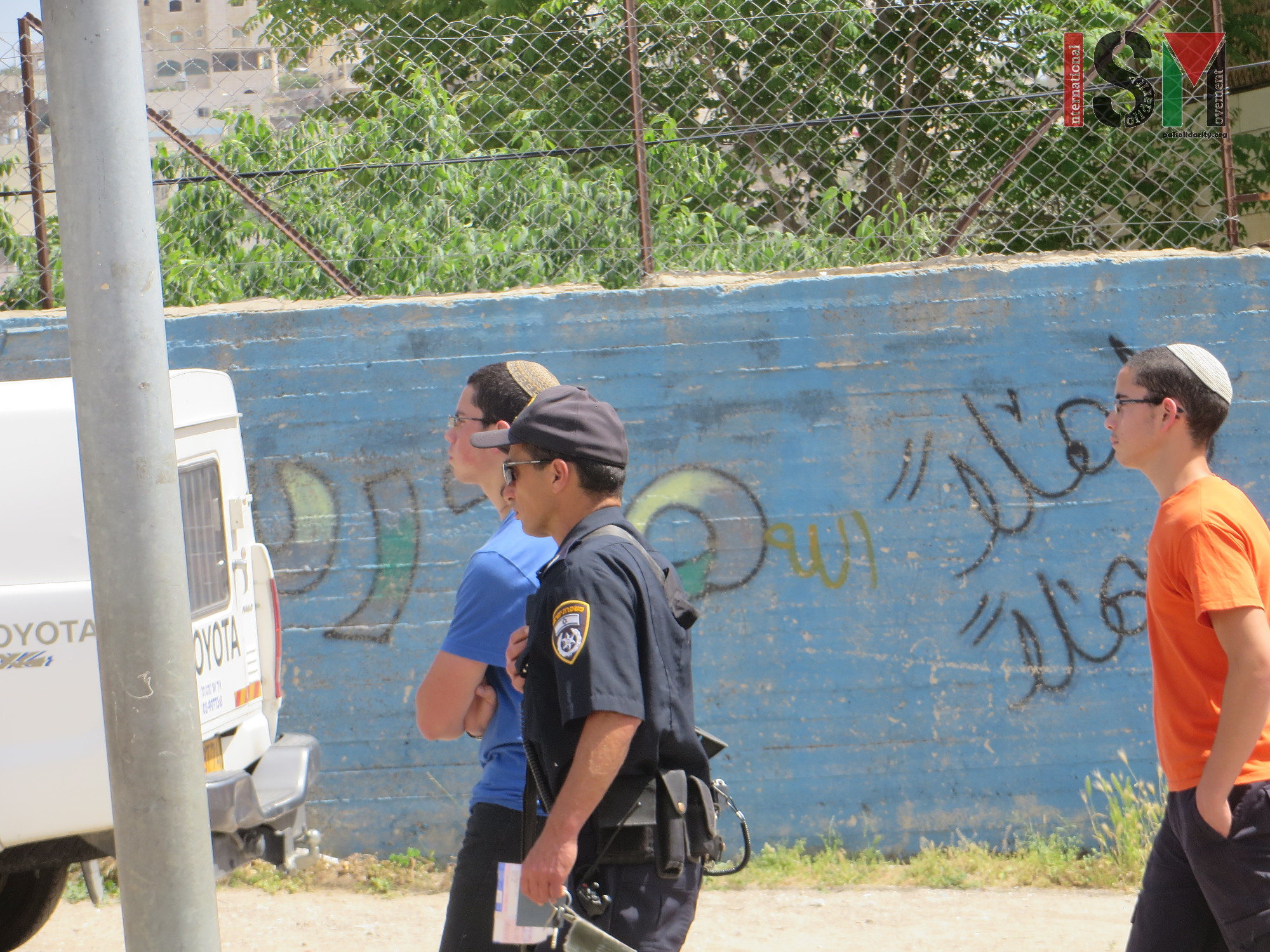Tag: Apartheid
-
Qarawah water apartheid
21st June 2016 | IWPS | Deir Istiya, occupied Palestine When Aziz ‘Aasee, the mayor of Qarawah Bani Hassan village drives through the streets, we’re stopped every few meters by one of his constituents, all of whom are asking the same question: When will we have water again? For some, the question is a joke;…
-
Celebrating Israeli Independence day from the other side of apartheid fence
13th May 2016 | International Solidarity Movement, Verena, Al Khalil team | Hebron, occupied Palestine Leaving the meeting I was searching for a safe way to go through the old City of Hebron alone, where there was a celebration of ”Israeli Independence day” going on. I wanted to reach my ISM team members who were already patrolling there.…
-
Palestinian youth intentionally run over in Hebron
22st April 2016 | International Solidarity Movement, al-Khalil team | Hebron, occupied Palestine On the afternoon of 21st April 2016, an Israeli settler ran down a Palestinian youth with his car, causing critical injuries, near the Ibrahimi mosque in occupied al-Khalil (Hebron). Two settlers were driving down the road connecting Shuhada Street and Kiryat Arba in…



